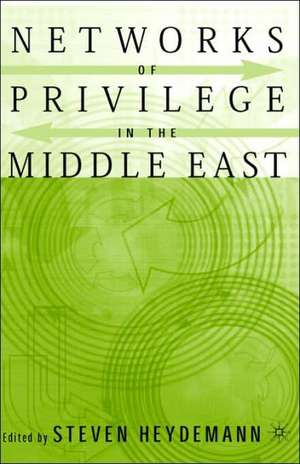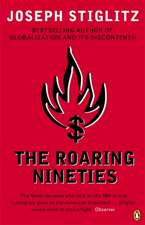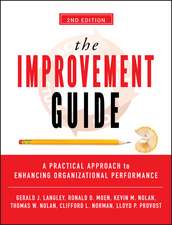Networks of Privilege in the Middle East: The Politics of Economic Reform Revisited
Autor S. Heydemannen Limba Engleză Hardback – 29 iul 2005
| Toate formatele și edițiile | Preț | Express |
|---|---|---|
| Paperback (1) | 387.38 lei 6-8 săpt. | |
| Palgrave Macmillan US – 29 iul 2005 | 387.38 lei 6-8 săpt. | |
| Hardback (1) | 730.16 lei 6-8 săpt. | |
| Palgrave Macmillan US – 29 iul 2005 | 730.16 lei 6-8 săpt. |
Preț: 730.16 lei
Preț vechi: 890.44 lei
-18% Nou
Puncte Express: 1095
Preț estimativ în valută:
139.73€ • 145.35$ • 115.36£
139.73€ • 145.35$ • 115.36£
Carte tipărită la comandă
Livrare economică 14-28 aprilie
Preluare comenzi: 021 569.72.76
Specificații
ISBN-13: 9781403963529
ISBN-10: 1403963525
Pagini: 352
Ilustrații: VIII, 334 p. 2 illus.
Dimensiuni: 140 x 216 x 24 mm
Greutate: 0.52 kg
Ediția:2004
Editura: Palgrave Macmillan US
Colecția Palgrave Macmillan
Locul publicării:New York, United States
ISBN-10: 1403963525
Pagini: 352
Ilustrații: VIII, 334 p. 2 illus.
Dimensiuni: 140 x 216 x 24 mm
Greutate: 0.52 kg
Ediția:2004
Editura: Palgrave Macmillan US
Colecția Palgrave Macmillan
Locul publicării:New York, United States
Cuprins
Introduction Networks of Privilege: Rethinking the Politics of Economic Reform in the Middle East; S.Heydemann Business-State Networks and the Politics of Economic Reform The Formation and Development of Economic Networks in Syria: Implications for Economic and Fiscal Reforms, 1986-2000; B.Haddad The Whales of the Nile: Networks, Businessmen, and Bureaucrats during the Era of Privatization in Egypt; J.Sfakianakis Patterns of Resistance: Economic Actors and Fiscal Policy Reform in Egypt in the 1990s; U.G.Wurzel From Negotiation to Rent Seeking, and Back?: Patterns of State-Business Interaction and Fiscal Policy Reform in Jordan; O.Wils Fiscality, Economic Reforms, and the Role of Networks: Nobody Having Too Much To Answer For: Laissez-Faire, Networks, and Post-War Reconstruction in Lebanon; R.Leenders Fiscal Trajectories in Morocco and Tunisia; B.Hibou Participatory Development and Liberal Reforms in Tunisia: The Partial Incorporation of Economic Networks; J.Cassarino The Limits of Network-Based Approaches: Challenges to Networks of Privilege in Morocco: Implications for Network Analysis; M.Cammett Reconciling Privilege and Reform: Fiscal Policy in Egypt, 1991-2000; E.Kienle Contributors Bibliography
Recenzii
'This volume fills a major gap in the scholarly and policy literature on globalization and economic reform by inserting the Middle East squarely into contemporary debates about the political economy of development. Drawing on economic sociology's new network analysis, the contributions in this collection provide unusually subtle interpretations of the laggard patterns of economic reform and privatization in the Middle East at the beginning of the twenty-first century. At long last, students of comparative political economy will find here instructive and accessible Middle Eastern cases - including the 'success stories' of the Arab world - while students of the Middle East will encounter social science deployed to generate plausible and provocative hypotheses about the nature of power and wealth in the region. This is a welcome contribution to debate about the impetus and impediments to reform in the Middle East.' - Lisa Anderson, Dean of the School of International and Public Affairs, Columbia University, USA
'Economic reform threatens existing economic elites, but also offers them opportunities to shape reform in their interests. This volume explores the process of reform in the Arab world, examining the role of informal networks of blood, marriage, patronage, common schooling in shaping the response of privileged groups to reform. The individual contributions offer important insights into the process of economic reform in individual countries in the Arab world,and together the contributions help to illuminate the crucial role of informal networks in economic reform in the region. The volume helps us to better understand the nexus between politics, informal ties, and economic outcomes in the Arab world.' - Michael Herb, Georgia State University, USA
'Economic reform threatens existing economic elites, but also offers them opportunities to shape reform in their interests. This volume explores the process of reform in the Arab world, examining the role of informal networks of blood, marriage, patronage, common schooling in shaping the response of privileged groups to reform. The individual contributions offer important insights into the process of economic reform in individual countries in the Arab world,and together the contributions help to illuminate the crucial role of informal networks in economic reform in the region. The volume helps us to better understand the nexus between politics, informal ties, and economic outcomes in the Arab world.' - Michael Herb, Georgia State University, USA
Notă biografică
STEVEN HEYDEMANN is Director, Centre for Democracy and the Third Sector, Georgetown University, USA.













